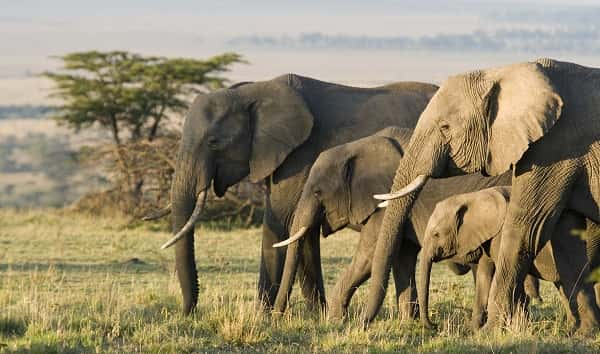
iStock(NEW YORK) — Hundreds of elephants in Zimbabwe have starved to death in recent weeks as one of the region’s worst droughts in decades has dried up grazing land and water sources.
Zimbabwe Parks and Wildlife Management Authority spokesperson Tinashe Farawo confirmed to ABC News on Tuesday that, as of last week, more than 200 elephants — along with many other animals — have already perished in national parks over the past two months due to a lack of food and water.
“The figure keeps rising,” Farawo said.
The wildlife agency has issued permits to translocate 600 elephants from Save Valley Conservancy in southern Zimbabwe — one of the largest private game reserves in Africa — to three other national parks in the coming weeks.
Zimbabwe is home to one of the largest elephant populations in Africa, with an estimated 85,000. But the survival of these pachyderms and other wildlife is threatened as persistent drought strangles swaths of southern Africa, devastating crops, grasslands and water holes. Months of above-average temperatures, erratic rainfall, back-to-back cyclones and flooding this year have also proven to be a recipe for disaster in a region of people largely dependent on rain-fed, smallholder agriculture.
The United Nations food agencies have warned that a record 45 million people across 16 southern African nations will be severely food insecure in the next six months. There are already more than 11 million people experiencing “crisis” or “emergency” levels of food insecurity in nine southern African countries, including Zimbabwe.
Meanwhile, temperatures in southern Africa are rising at twice the global average, and Zimbabwe is one of nine African countries set to be hardest hit by adverse weather in the coming years, according to the Intergovernmental Panel on Climate Change, a U.N. body comprised of thousands of scientists representing 195 nations.
“We’ve had the worst drought in 35 years in central and western areas during the growing season,” Margaret Malu, the World Food Program’s acting regional director for southern Africa, said in a statement last month. “We must meet the pressing emergency food and nutrition needs of millions of people, but also invest in building the resilience of those threatened by evermore frequent and severe droughts, floods and storms.”
Copyright © 2019, ABC Radio. All rights reserved.
